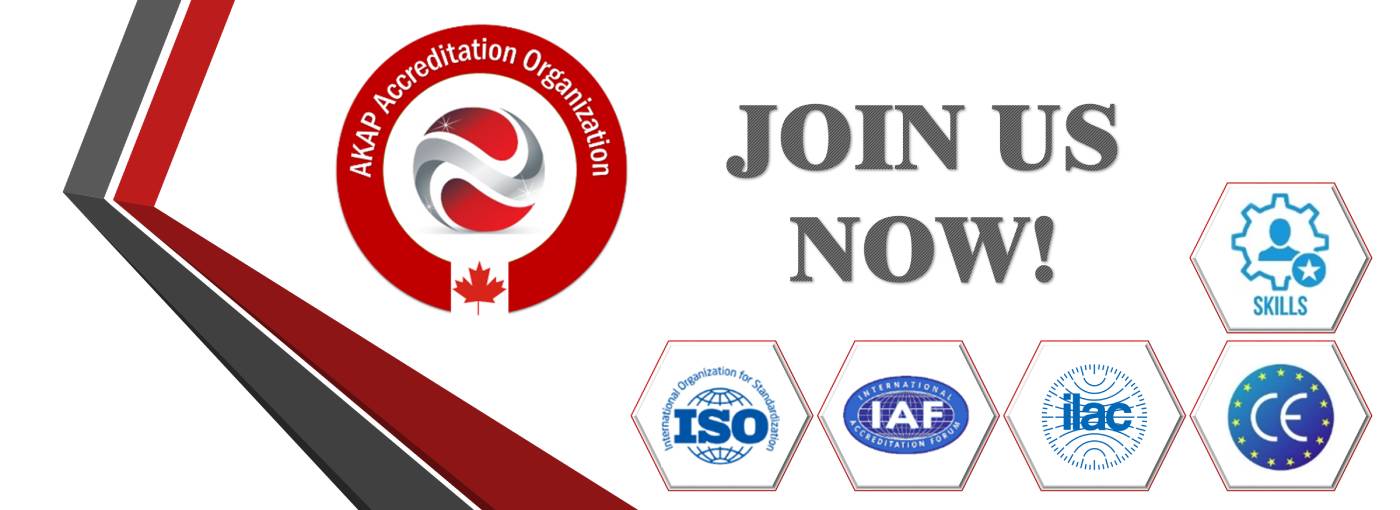AKAP Accreditation Organization

Conformity-assessment bodies assess whether products and services from suppliers meet the specified requirements. They do this for every imaginable field of work: health, environment, construction, energy, food, transport, and finance, to name but a few. In the event of a positive assessment, the supplier is issued with a statement of conformity in the form of a certificate or report.
It is important that conformity-assessment bodies are expert, impartial and independent because only then statements they issue are useful and reliable. The AKAP, therefore, checks that these bodies meet the European (EN) and international (ISO or ISO/IEC) standards. If they do they receive an accreditation mark – an audit of the audit.
Fields of work
When assessing conformity-assessment bodies we distinguish between different disciplines:
The way in which a conformity assessment is conducted therefore differs greatly. For example, it can involve testing a sample in a laboratory, measuring the critical components of a complex installation, analyzing an organization and its production processes, or having people sit examinations. The subjects are also very diverse. Accreditation ranges from DNA testing to websites, from free-range eggs to career advisers, from lifts to asbestos inspections, and so on. And our field of work is expanding constantly.
The work of the AKAP is focused on underpinning this trust via expert, impartial and independent supervision:
Companies can have their products, processes, and services assessed objectively by a laboratory, inspection body, certification body, or verification body. And that extends to every imaginable field of work: health, environment, construction, energy, food, transport, and finance, to name but a few.
Does a supplier meet the requirements? If a supplier does it will be issued with a statement of conformity in the form of a certificate or report. Accordingly, assessing bodies are known as conformity-assessment bodies.
This statement has the most value when the assessing body is expert, impartial and independent. The AKAP, therefore, checks whether a conformity-assessment body is competent and if the results are positive it becomes an accredited body.
The AKAP grants accreditation for a specific sphere of work based on a specific, determined method. This is logical because expertise plays a big role. In accreditation, this is called the ‘scope’. This defines what is and what is not covered by accreditation. The fact that an organization is accredited says something in combination with the scope for which the accreditation has been issued. Just compare it for convenience’s sake with a driving license: you cannot drive a bus if your driving license is only valid for driving motorcycles.
The method applied by the conformity assessment body can be determined in various ways:
In national or international standards such as the ISO, IEC, NEN, ASME, and OIML;
In legislation and regulations such as the European directives for product safety, national commodities decrees for inspection in the use phase of machines, lifts, and pressure equipment, the soil quality regulation, etc.;
In conformity assessment schemes by which the requirements on the object of conformity assessment are determined, as well as the requirements imposed on the conformity assessment body and how it carries out the activities (the: ‘what, how, and who of the conformity assessment’). A scheme can be formulated by a conformity assessment body (CBI) itself, or by an external scheme owner. The versions of the schemes of an external scheme owner who underwent a positive evaluation by the AKAP are included in the list of schemes for which the AKAP can grant accreditation
By a method developed by the conformity assessments body itself.
